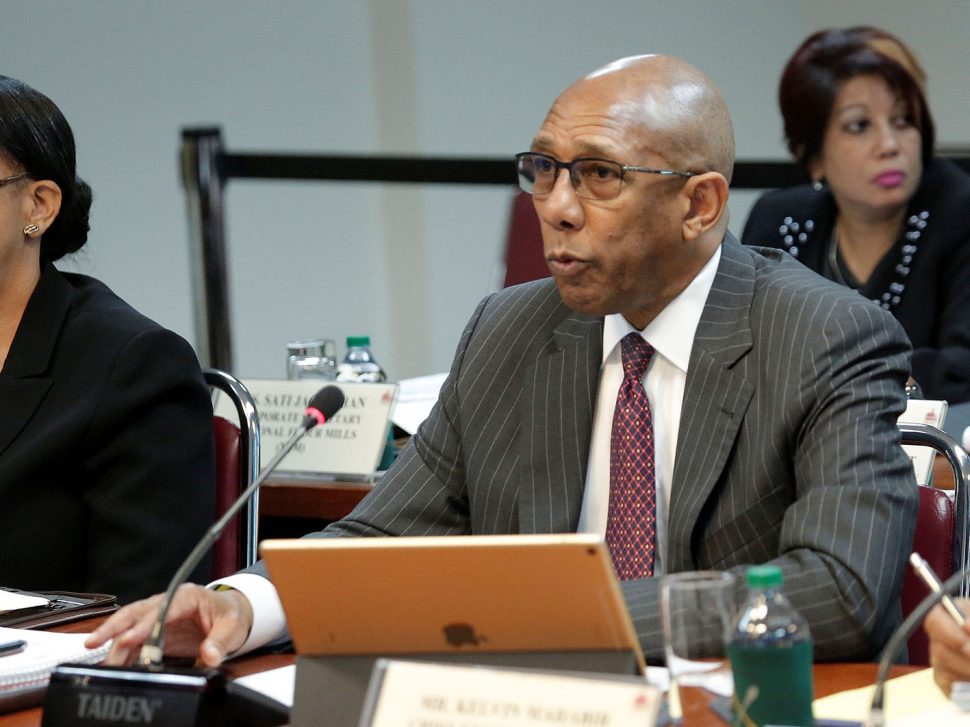Local rice production dropped from 21,000 metric tonnes in 1992 to just 585 metric tonnes last year, a Joint Select Committee (JSC) chaired by Anthony Viera heard from National Flour Mills (NFM) chairman Nigel Romano yesterday.
Romano, who gave a breakdown of the quantity of rice produced in testimony before the JSC on State Enterprises, said in 1992 NFM purchased approximately 21,200 metric tonnes of paddy from farmers. By 2013, the figure plummeted to 2,859 metric tonnes, then to 1,893 metric tonnes in 2015 and last year, NFM bought just 585 metric tonnes.
Grade one paddy fetches $2.99 per kg, while farmers collect $2.85 per kg for grade two. Approximately 34,000 metric tonnes is consumed in T&T annually.
NFM CEO Kelvin Mahabir admitted that the company’s rice mill at Carlsen Field is operating at 15 per cent capacity because of insufficient paddy.
In answer to a question from JSC member Fazal Karim, Mahabir said “95 per cent ends up as input into animal feed, while five per cent is used for human consumption. Karim said those watching the meeting on television would conclude “that there is a deliberate attempt by NFM to close down the rice industry.”
Romano said the rice mill has no facilities for producing parboiled rice. He said they have identified an investor to upgrade the mill and establish a parboiling facility which would help increase local production and its viability.
“Without that, any attempt to grow and produce more in Trinidad, we would end up in difficulty. We would be supplying something for which there is very little demand,” Mahabir said.
Romano said the mill will be able to process 12,000 metric tonnes of paddy annually, and the Ministry of Agriculture will give farmers technical advice and training.
JSC member Lester Henry asked if rice is an important component of NFM’s production, to which Romano replied: “It’s not part of our core business.”
Member Wade Mark said he believed farmers have become frustratedwith NFM not paying them on time, a problem which he says has been going for months. Romano agreed there is room for improvement with the company’s payment process.
“What explains 3,000 metric tonnes in 2013 to slip to 585 metric tonnes in 2018? Something has to be wrong. Some analysis must be made by the Ministry of Agriculture and NFM. If this continues in three years there will be no paddy and farming community. I don’t know what is the game plan,” Mark said.

